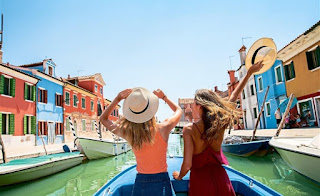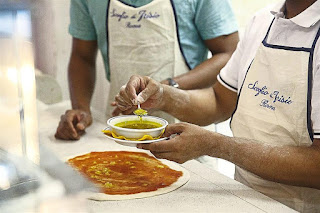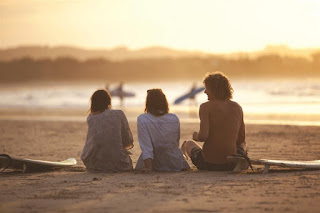What Do Millennial Travellers Want? - Young, fabulous – and extremely experiential. That’s how some millennials perceive themselves to be.
Now, tour company Contiki has come forward to state – with the backing of a survey – that millennials are, in fact, on the lookout for new experiences when they travel.
In a phone interview from the Swiss Alps in Switzerland, Contiki global chief executive officer Casper Urhammer (“I’m here for a meeting”) reveals that 65% of respondents agree that experiences are the most important thing in life.
“Millennials are most interested in travel to learn about other cultures, above everything,” Urhammer offers.
“They want to create meaningful social connections, with the locals they meet and the people they travel with. Which is why social travel is so great,” he adds.
Conducted last year with over 5,000 respondents between the ages of 18 and 35, the survey reveals that social experiences reign supreme (74%), with cultural, food and intellectual experiences taking second, third and fourth place respectively.
“Millennial travellers are essentially looking for local experiences. Food is a significant driver of travel, where the types of places they go to and the experiences they want to have are very often centred around foodie experiences,” he says, citing examples such as taking cooking classes in Italy and walking tours of markets in Barcelona.
Education and learning also proved to be popular aspects among the respondents from Contiki’s global key markets.
“We’re seeing an emergence in travellers wanting to learn a new skill while they travel, whether it be how to cook paella in Spain, or understanding the story behind the coffee bean in Costa Rica,” Urhammer says.
By definition, Urhammer says, millennials are those born between 1980 and 1994. However, he stresses that being a millennial traveller is more about some key personality traits.
“There’s a desire for adventure and to see the natural beauty of our world. They want to put themselves out of their comfort zone and try new experiences.
“It’s not just about looking at sights anymore, although that is still important. They now want to be hands-on and have immersive experiences in the places they visit and with the people they meet,” he explains.
When asked how the new generation of travellers differs from their older counterparts, Urhammer says holidays for millennials is not just a matter of seeking rest and relaxation.
Contiki global chief executive officer Casper Urhammer says millennials rank new experiences as the most important thing in their travels.
“What might have changed is what they travel for,” he says, adding that it’s not uncommon for young adults to visit a destination just to see the filming site of their favourite TV shows or catch their favourite musician perform live in a concert.
“We’re living in a world with a lot of information. People consume a lot of media and we are exposed to various contents,” Urhammer continues, adding that some of these contents, such as social media postings, can inspire one to travel.
Interestingly, the survey also highlighted the psyche of young adults.
“There’s increasingly more importance placed on a healthy body and mind, with our travellers continuously looking to stay healthy on the road through their meal choices, activities, and less and less consumption of alcohol,” notes Urhammer.
He adds that millinennials believe in equality and want to make a difference in the world. They also have a strong belief in multiculturalism and peace.
Those beliefs are also inspiring millennials to be bolder in making their decisions as well as be more open to the idea of travelling, Urhammer reckons.
“They are more amicable and are always up for an adventure,” he offers. “Cultural experiences and local experiences are more important than partying.”
Of course, another question that springs to mind is: What are the top destinations for millennials in 2017?
They are Europe, the United States, Canada and Japan, says Urhammer.
“They all offer experiences,” he says of the common thread regarding those top destinations. “Travel to Europe still has the biggest appeal to the millennial audience, with USA coming in a close second, followed by Canada.”
Destinations aside, Urhammer says that appealing to millennial travellers boils down to choice, connectivity, flexibility and free-and-easy time.
“We know millennials aren’t one homogenous group and don’t all want the same travel experiences. They want a travel experience that reinforces their individuality but still with the safety and security that group travel provides,” he says, adding that WiFi connection at accommodations is a necessity.
Of course, “me time” shouldn’t be discounted as millennials want to be able to explore venues at their own pace.
After all’s been said and done, what does the future hold for the young adult travel market? Urhammer has his money on the resurgence in group travel.
“Travel is so accessible now, and so fragmented, that it actually becomes quite lonely. You can stay in a nice hotel, and book experiences online. But it’s the people that you share them with, and the new friendships you make, that you’ll remember forever,” he concludes.





0 comments:
Post a Comment